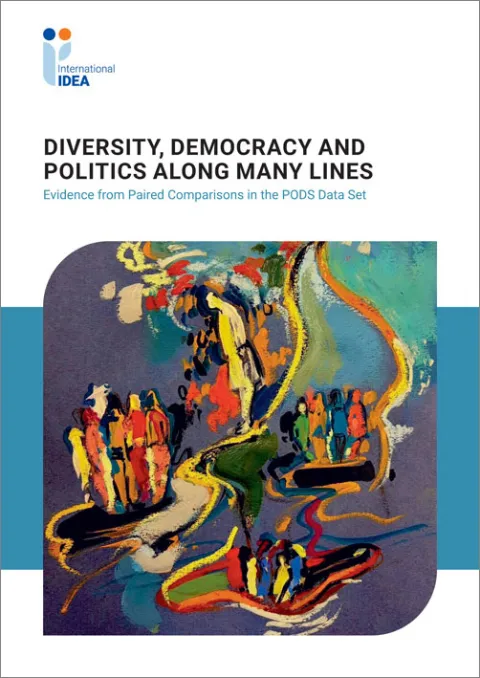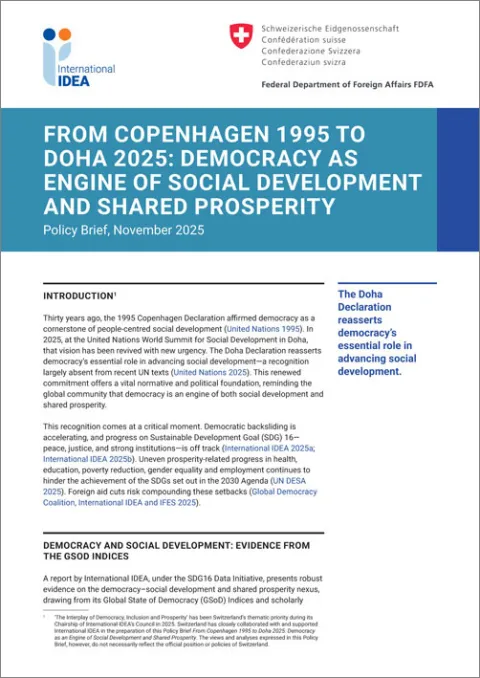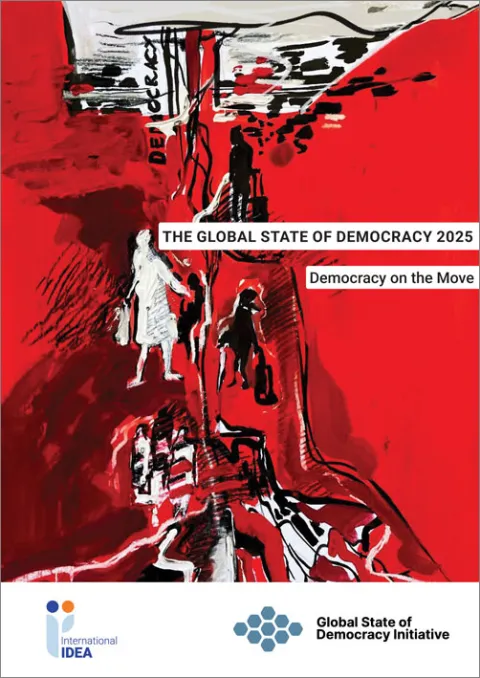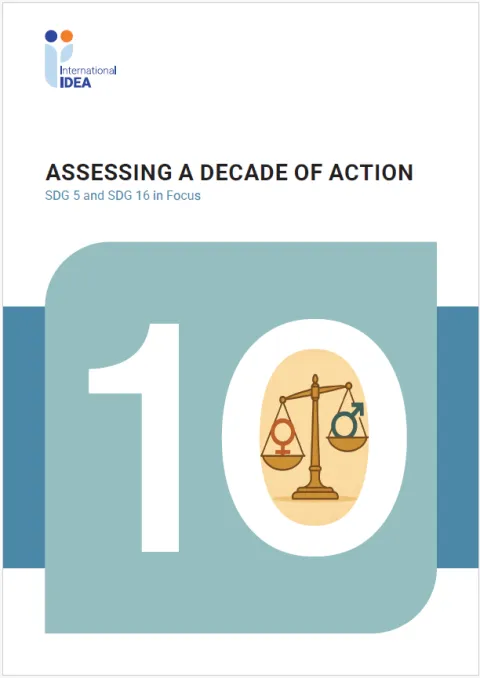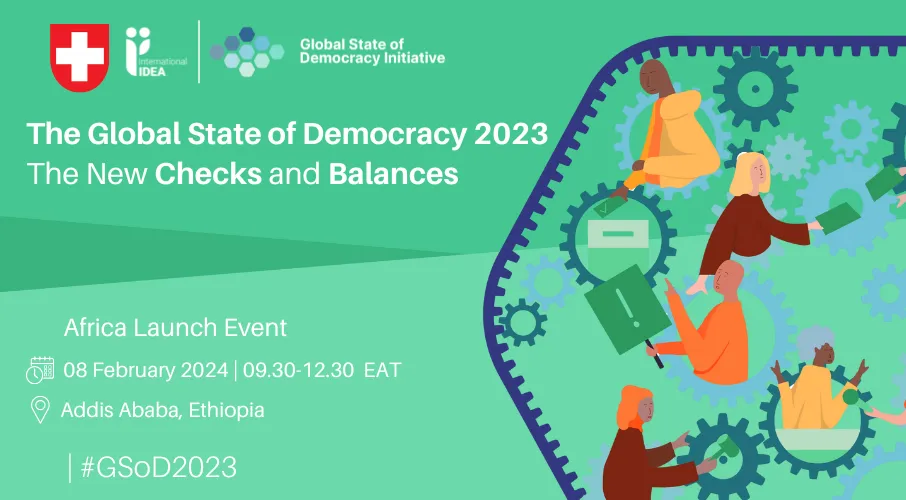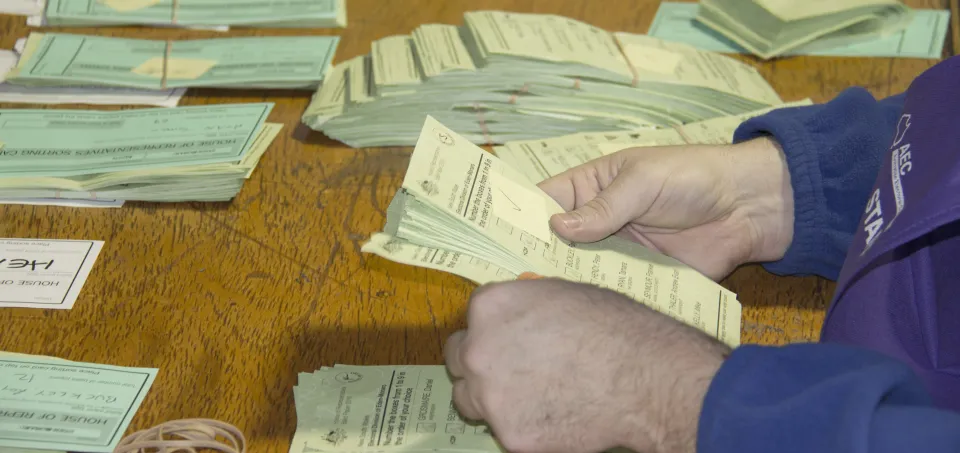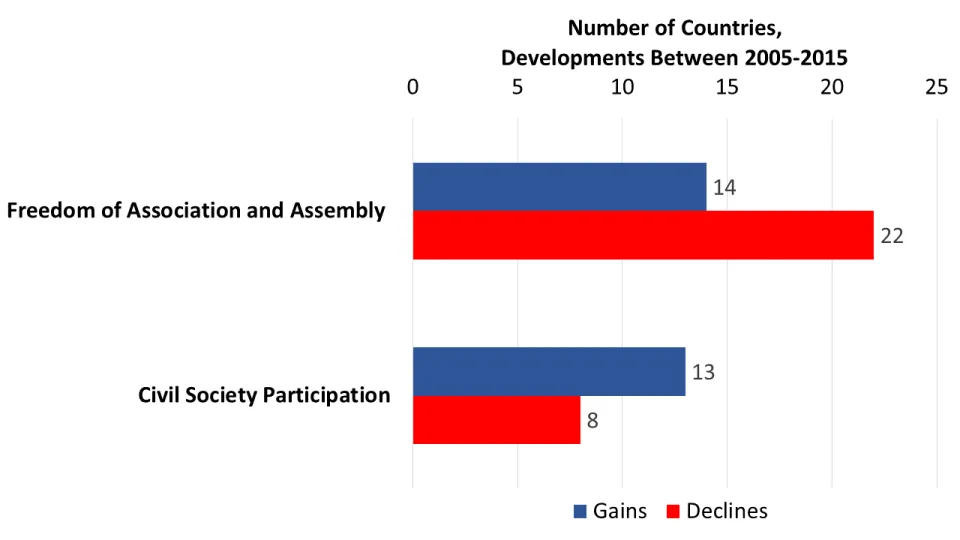The Global State of Democracy Indices: Technical Procedures Guide, Version 7 (2023)
The Global State of Democracy is a report that aims to provide policymakers with an evidence-based analysis of the state of global democracy, supported by the Global State of Democracy Indices (GSoD Indices), in order to inform policy interventions and identify problem-solving approaches to trends affecting the quality of democracy around the world.
This document revises and updates the conceptual and measurement framework that guided the construction of Version 7 of the GSoD Indices, which depicts democratic trends at the country, regional and global levels across a broad range of different attributes of democracy in the period 1975–2022.
The data underlying the GSoD Indices is based on a total of 157 indicators developed by various scholars and organizations using different approaches, including expert surveys, standards-based coding by research groups and analysts, observational data and composite measures.
Details
Staff author
Related databases & tools
Contents
About this document
Introduction
Background
Conceptual structure
1. Data sources
2. Coverage
3. Indicators
4. Assessing the unidimensionality of the indices
5. Aggregating the indicators into indices
6. Scaling
7. Confidence intervals
8. Validity checks
Conclusion
References
Annex A. Sources
Annex B. Countries, regions and subregions included in International IDEA’s GSoD Indices
Annex C. Regional organizations included in the data set
Annex D. Attributes, subattributes and indicators
Annex E. Dimensionality tests, factor loadings and Cronbach’s alpha values
Annex F. Item–item correlations
Annex G. Comparisons with extant measure
Give us feedback
Do you have a question or feedback about this publication? Leave us your feedback, and we’ll get back to you
Send feedbackThe Global State of Democracy Indices: Technical Procedures Guide, Version 7 (2023)
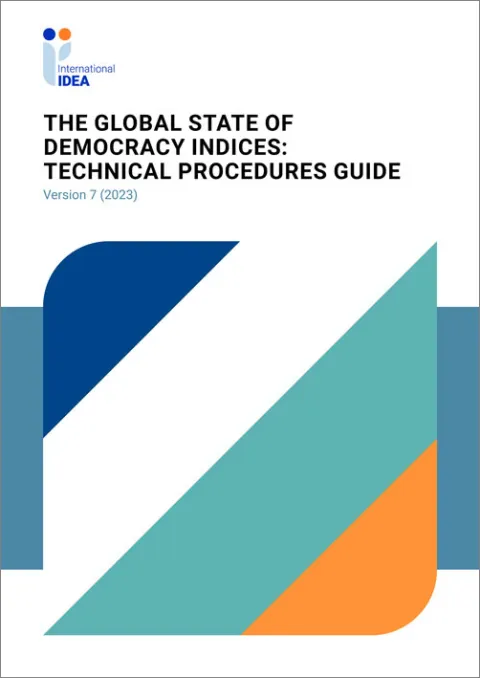
| Total views | 2169 |
|---|---|
| Downloads | 120 |
| Rating |
Staff author
Related databases & tools
Give us feedback
Do you have a question or feedback about this publication? Leave us your feedback, and we’ll get back to you
Send feedback